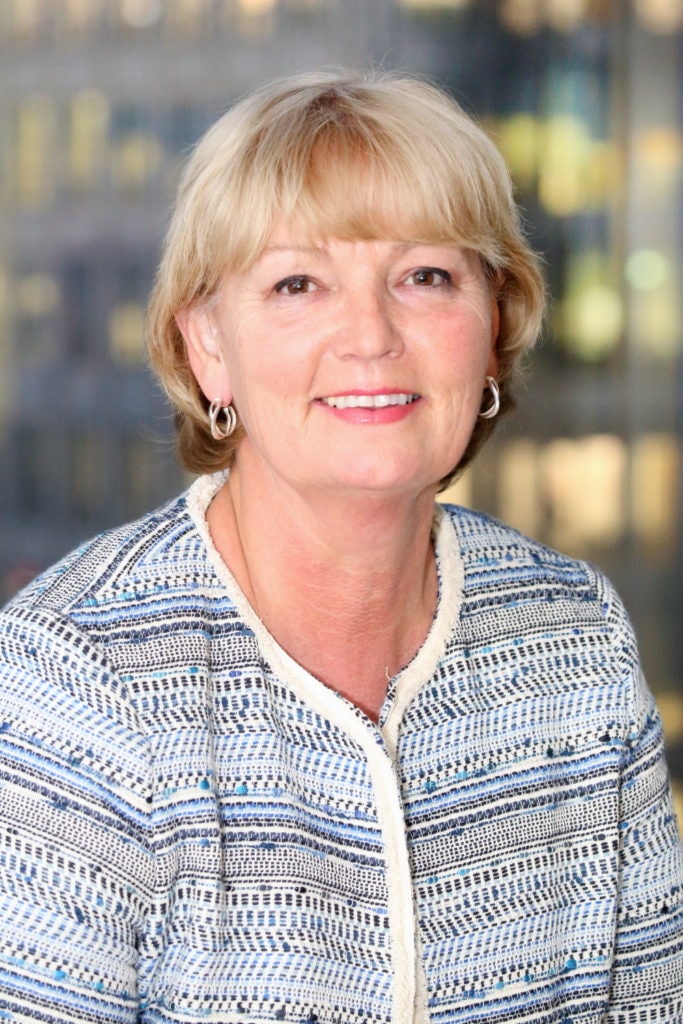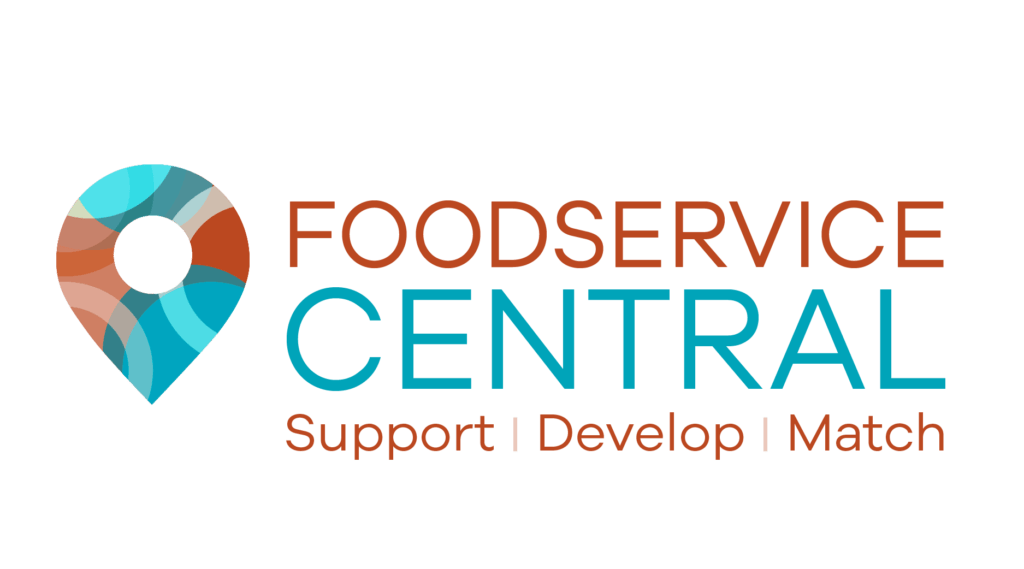
It takes many admirable characteristics to launch a new start-up business or initiative. Usually, the impetus is an entrepreneur with an appetite for risk-taking, spotting an opportunity and doggedly pursuing a dream that will solve a consumer or business need. And, while there is no perfect time to launch a start-up, trying to do so in the midst of global pandemic and some of the worst business conditions in living memory takes a very special resolve. Sometimes, it simply takes a special idea – and special people – to make it work.
Here, Michael Jones speaks with the driving forces behind three UK-based initiatives launched within the last year, about their motivation, how their ideas were brought to life and how they have found success in the toughest time for the foodservice and hospitality industry.
1. Food Service Circle
Wendy Bartlett, founder, Bartlett Mitchell (pictured, below), is part of the team behind Food Service Circle, a support network for foodservice and contract catering professionals funded by the leaders of the UK’s food service companies. Its aim is to help UK foodservice professionals impacted by the Covid-19 pandemic by sharing ideas, insights, and job opportunities.
When was Food Service Circle formed and what do you specialise in?
This was formed last month off the back of the UKHospitality Foodservice Forum. Many of the leading caterers sit on this group, and we collectively decided that we wanted to do something to support those who have been impacted by the economic fallout of Covid-19. This site not only offers guidance support and insights for those affected people support direct from our sector but also opportunity to find a job – be that in our sector or others, as they come available.
What drove you all to start it up?
It has been really heart-breaking to see the impact the pandemic has had on the workplace catering, and in particular our teams. People who have spent so much time and effort making the industry a brilliant place, it has been over the years, many have seen themselves either out of work, or working on reduced hours as a direct result of government policy and the slow return to the workplace.
We know the important role people have played in developing our sector so wanted to try and do something to support them during this challenging time for us all. What was most important to us was helping them find another role – this site is designed specifically for this.
What has been the reaction from the market?
We have been overwhelmed by the support and feedback from the sector and so many companies have offered their resources to help as part of the process. This isn’t the only resource site, the more the merrier is our view. it’s important that we have the ability to get the message out there that they are not alone.
More importantly, we are receiving so many positive comments from people who this has directly affected, many of whom have said that they are grateful that they haven’t been forgotten and that they they still feel part of the foodservice family, despite currently being out of work.
One manager succinctly put it by saying he doesn’t feel like he has been “thrown under the bus” – as he could see we are all doing all we can to support.
How has the pandemic affected the market?
We have seen a significant impact on the sector since the lockdown. It is predicted that, as a direct result of the pandemic, more than 20% of roles will be made redundant over the next few months. This issue has affected everybody in our sector which is why we are all doing what we can to support as many people as possible. Importantly, we are doing this together.
What is the one big business learning you have had since you all started up Food Service Circle?
What has been really heartening is the fact that so many caterers have come together to collaborate on something like this. We are by nature fiercely competitive. But, we know that we are all in this together and by working closely with one another we can demonstrate to our teams the value of the sector and can have a greater impact on getting the sector up and running again.
Employees will remember how they are treated during this time by employers and as a sector we wanted to show that we genuinely care about the teams. This has been a truly collaborative effort.
What does the future hold? What does success look like?
Ultimately, we need to see more movement from the government to get people back to work in Covid-safe environments.
As caterers in other people’s businesses, we are always uber conscious of demonstrating safe working and minimising risk. Every single caterer has taken great lengths to make sure that our workplaces are Covid-secure. We need a sensible policy to get people back to work.
As a sector, we are very used to being flexible and adapting to change quickly. While there will be some short to medium term challenges, I am confident that we will adapt and come back stronger than we were before.
People will always need to eat and, given the changes in workforce behaviour, we see food as playing a hugely significant role in helping companies increase their engagement and, ultimately, their productivity. People need to be in the office as you can’t build workplace culture at home.
We still believe that the future is bright. We are social beings and food plays a big part in that.
Further details:
https://foodservicecircle.com/
2. Foodservice Central Ltd
Phil Hutchinson-May and Paul Knight (pictured, below) are the co-founders of Foodservice Central Ltd, a new job board for the UK foodservice supply community. Its mission is to work with foodservice distributors and manufacturers looking to recruit talented people, whether for a specific key role or developing an organisation’s longer-term plan.
When was your business formed and what do you specialise in?
Foodservice Central Ltd was formed on 1 September, but we started planning it back in June 2019. It is a job board for the foodservice sector, with the aim to bring distributors and manufacturers and candidates together in one place, but also offering career advice and support to candidates and an opportunity for companies to promote and build their employer brand in our sector.
What was the inspiration behind the company? What drove you to start it up?
We first met back in the late 1990s when Paul was recruiting at 3663. We stayed in touch and when Paul left Bidfood in early 2020, we decided to work together.
The trend in recruitment is towards digital and online job boards. Candidates want simple access to one place for job in the foodservice sector. Companies want direct access to relevant high calibre candidates and to reduce their recruitment costs while building their employer brand. That’s how Foodservice Central was born.
What has been the reaction from the market to your company?
It has been very positive from senior managers, HR and in-house recruiters. Candidates have also registered in good numbers (but we could always do with more!) and we’ve had lots of positive comments, messages and goodwill.
How has the pandemic affected business?
 Well, we only started a month ago, so it’s very early days, but we have set up to help companies and candidates affected by the pandemic, so we hope our timing is good.
Well, we only started a month ago, so it’s very early days, but we have set up to help companies and candidates affected by the pandemic, so we hope our timing is good.
What the one big business learning since you started up?
We have received positive comments and wishes, but then how do we then translate that into commitment and “live” business relationships? We are offering a job board that will reduce company’s costs, access high-calibre people and build their employer brand. The trend is towards job boards and direct in-house recruitment, so it’s a service and solution that the market has asked for.
What does the future hold? What does success look like?
We will keep talking with foodservice distributors and manufacturers, senior managers, HR and in-house recruiters to demonstrate to them the value of getting involved. Success would be a vibrant foodservice industry job board – where companies recruit at a low cost and candidates access the widest choice of jobs and career advice
Further details:
3. Loopcycle
Lugano Kapembwa (pictured, below) is co-founder & CEO of Loopcycle, which aims to “harnesses the power of conscious businesses to unearth new markets for upcycling” in sectors such as foodservice and hospitality.
When was your company formed and what do you specialise in?
Loopcycle creates trusted, repeatable and traceable exchanges of valuable used resources. It does this by matching organisations that have used resources to offer, with those requiring them to make new products. This transaction is called a Cycle and is captured by a secure material ledger. Once the Cycle is complete, a Cyclecode is released – this is a smartphone-scannable code displayed on the new product, enabling the purchaser to view the provenance of the used resources within it.
We started Loopcycle in 2019 and launched the platform earlier this year.
What was the inspiration behind the company?
The inspiration behind Loopcycle is to build a frictionless circular economy in which there is a consistent and stable supply of valuable used resources. This will drive the development of circular products at industrial-scale.
The specific motivation behind our work with the foodservices sector is to improve recovery of the huge surplus of foodservices equipment by manufacturers in order to recondition, re-warranty and resell back into the foodservices value chain. This will create a robust second-hand market that improves Covid-resilience by allowing faster and more affordable access to manufacturer-assured equipment – which is often sold onwards with no understanding of where it goes and what happens to it.
What has been the reaction from the market to your company?
The reaction has been overwhelmingly positive – many companies see Loopcycle as an opportunity develop a more digitised, circular supply chain within the sector. Covid has really hit the industry hard; but the industry has also showed how it can adapt to a post-Covid world where alfresco seating and changes in consumer behaviours around takeaway dining are here for the foreseeable future. Loopcycle provides more sustainable and reliable access second-hand equipment that helps organisations adapt in a cost effective way.
How has the pandemic affected business?
It’s been a rollercoaster, that’s for sure. We launched a week before lockdown and quickly lost our pipeline as offices and companies closed. It was a very difficult time. But we used this period effectively by re-assessing our business model and our ideal customer profile. By challenging all of our assumptions, we discovered a specific fit with a smaller number of key sectors for which we could develop a tailored solution – foodservices being one of them.
What the one big business learning since you started up?
In order to realise opportunities in situations that feel helpless, you have to be prepared to fundamentally challenge everything that you know – or thought you knew. It’s this way of thinking that has got us this far and allowed us to add value to this sector – through this mindset we will help the sector to evolve and thrive in a post-Covid world.
What does the future hold? What does success look like?
We will have a world where circular-designed products are front and centre of consumer and business purchasing decisions. In this world, our “Cyclecode” will be the leading mark of circular assurance. Manufacturers will register their products and valuable components into the platform so that traceability begins at point of sale. By doing so, they will unlock new circular business models – servitisation, asset replacement and re-warrantying – which will ultimately extend the life of the product and provide an infinite value beyond its primary use.
Further details:
Michael Jones


